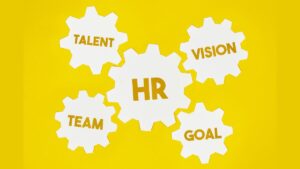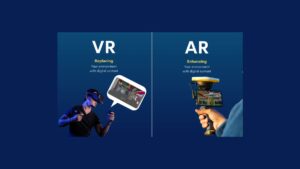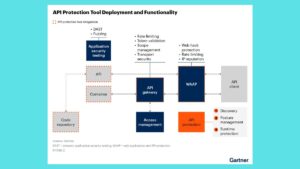HRTech Predictions for 2030: The Future of Human Resources Unveiled

As we look ahead to 2030, the world of human resources (HR) is set to undergo a radical transformation, driven by rapid advancements in technology. HRTech, the suite of digital tools and platforms designed to enhance HR functions, will continue to evolve, reshaping how organizations attract, retain, and develop talent. From artificial intelligence (AI) and machine learning (ML) to immersive technologies like virtual reality (VR) and augmented reality (AR), the HR landscape of 2030 promises to be more dynamic, data-driven, and employee-centric than ever before.
In this blog, we explore key HRTech predictions for 2030, highlighting the trends that will redefine the future of work and the HR profession.
1. Hyper-Personalized Employee Experiences
By 2030, HRTech will enable organizations to offer hyper-personalized employee experiences that cater to individual preferences, career aspirations, and personal circumstances. Leveraging AI and advanced analytics, HR platforms will create tailored learning paths, personalized benefits packages, and bespoke career development opportunities.
Predictions:
- AI-Driven Personalization: AI will analyze vast amounts of data to predict employee needs and deliver personalized experiences, from learning recommendations to mental health resources.
- Flexible Work Models: Employees will have more control over their work schedules and locations, with technology enabling seamless transitions between in-office, remote, and hybrid work settings.
- Adaptive Learning and Development: Learning platforms will adapt in real-time to employees’ progress, skills gaps, and interests, ensuring continuous and relevant professional growth.
2. The Rise of AI-First HR Departments
In 2030, AI will not just assist HR teams; it will be a central player in the HR department. AI-first HR departments will rely on intelligent automation, predictive analytics, and machine learning algorithms to enhance every aspect of human capital management, from recruitment to retention.
Predictions:
- AI-Powered Talent Acquisition: AI will handle end-to-end recruitment processes, including sourcing, screening, interviewing, and onboarding, reducing time-to-hire and improving candidate matching.
- Predictive Workforce Analytics: Advanced predictive models will help HR teams anticipate employee turnover, identify high-potential talent, and make proactive interventions to improve engagement and performance.
- AI-Augmented Decision-Making: AI will provide HR leaders with actionable insights and recommendations, allowing them to make data-driven decisions quickly and accurately.
3. Seamless Integration of AR/VR for Training and Collaboration
Immersive technologies like augmented reality (AR) and virtual reality (VR) will become integral to HR functions by 2030. These technologies will revolutionize training, collaboration, and onboarding, providing more engaging and effective experiences.
Predictions:
- Virtual Training Programs: VR will be used to create realistic simulations for employee training, from soft skills development to technical skills enhancement, providing hands-on learning without physical constraints.
- AR for Onboarding: New hires will use AR-enabled devices to navigate office spaces, learn about their roles, and interact with virtual mentors, making onboarding more interactive and less overwhelming.
- Virtual Collaboration Spaces: Remote teams will collaborate in immersive virtual environments that mimic real-world office spaces, enhancing communication, creativity, and teamwork.
4. Total Talent Management: Blending Full-Time, Freelance, and Gig Workers
The gig economy will continue to expand, and by 2030, HRTech will support total talent management strategies that seamlessly integrate full-time employees, freelancers, and gig workers. Organizations will adopt flexible talent models to tap into diverse skill sets and respond swiftly to market demands.
Predictions:
- Unified Talent Platforms: HR systems will offer integrated platforms for managing all types of workers, providing visibility into talent pools, availability, and performance metrics, regardless of employment status.
- Dynamic Workforce Planning: Advanced analytics will enable HR teams to forecast talent needs and adjust workforce composition in real-time, ensuring the right mix of skills for every project or initiative.
- Enhanced Compliance and Administration: HRTech will simplify compliance management for gig workers, ensuring adherence to labor laws, tax regulations, and contractual obligations across multiple geographies.
5. Advanced Analytics and Data-Driven Culture
Data analytics will become even more sophisticated, enabling HR departments to cultivate a truly data-driven culture. By 2030, HRTech will provide advanced tools for measuring and enhancing every aspect of the employee lifecycle, from engagement to productivity.
Predictions:
- Real-Time Analytics Dashboards: HR leaders will have access to real-time dashboards that track key performance indicators (KPIs), allowing for instant insights and agile decision-making.
- People Analytics as a Strategic Driver: Predictive and prescriptive analytics will go beyond reporting to drive strategic initiatives, such as workforce planning, diversity and inclusion, and organizational restructuring.
- Employee Sentiment Analysis: AI-powered sentiment analysis tools will continuously monitor employee feedback from multiple channels, providing an accurate pulse on workplace morale and engagement.
6. Blockchain for HR: Enhancing Trust and Transparency
Blockchain technology will play a significant role in HR by 2030, offering solutions that enhance trust, security, and transparency in HR processes. From verifying credentials to managing payroll and benefits, blockchain will streamline and secure critical HR functions.
Predictions:
- Credential Verification: Blockchain will enable instantaneous verification of candidates’ credentials, such as degrees, certifications, and work history, reducing the risk of fraud and speeding up the hiring process.
- Secure Payroll Systems: Blockchain-based payroll systems will ensure secure, transparent, and efficient transactions, especially for cross-border payments, reducing costs and errors.
- Smart Contracts for Employment: Smart contracts will automate employment agreements, ensuring compliance with predefined terms and conditions, from contract initiation to termination.
7. Focus on Employee Well-Being and Mental Health
By 2030, employee well-being will be a top priority, and HRTech will provide holistic solutions that address physical, mental, and emotional health. Organizations will leverage technology to create healthier work environments and support employees’ overall well-being.
Predictions:
- Well-Being Platforms: Comprehensive well-being platforms will integrate physical fitness, mental health support, financial wellness, and more, offering personalized programs and resources.
- Continuous Monitoring of Employee Health: Wearable devices and AI-driven health analytics will monitor employee health metrics, providing early warnings for burnout, stress, or other issues.
- Virtual Mental Health Services: Access to virtual counseling, therapy, and mental health resources will be readily available, ensuring employees have the support they need at their fingertips.
8. Ethical AI and Responsible HRTech Implementation
As AI and automation become more pervasive, ethical considerations will be at the forefront of HRTech development. By 2030, HR departments will prioritize the responsible implementation of technology, ensuring fairness, transparency, and respect for employee privacy.
Predictions:
- Bias-Free AI: Efforts to eliminate bias in AI algorithms will be critical, with HRTech providers developing transparent and fair systems that support diversity and inclusion goals.
- Privacy-First Technology: HRTech will prioritize data privacy, with stringent controls and transparent data usage policies that empower employees to manage their own information.
- Ethical Governance Frameworks: Organizations will establish governance frameworks to oversee the ethical use of HR technology, ensuring that all implementations align with company values and regulatory standards.
Conclusion
As we move towards 2030, the HR technology landscape will be characterized by rapid innovation, driven by advancements in AI, machine learning, blockchain, and immersive technologies. These trends will empower HR departments to deliver more personalized, efficient, and engaging experiences for employees, ultimately driving better business outcomes.
The HRTech of 2030 will not only enhance operational efficiencies but also play a strategic role in shaping organizational culture, driving inclusivity, and fostering a healthier, more dynamic workforce. For HR leaders, staying ahead of these trends will be crucial to navigating the future of work and creating an environment where both employees and businesses can thrive.







